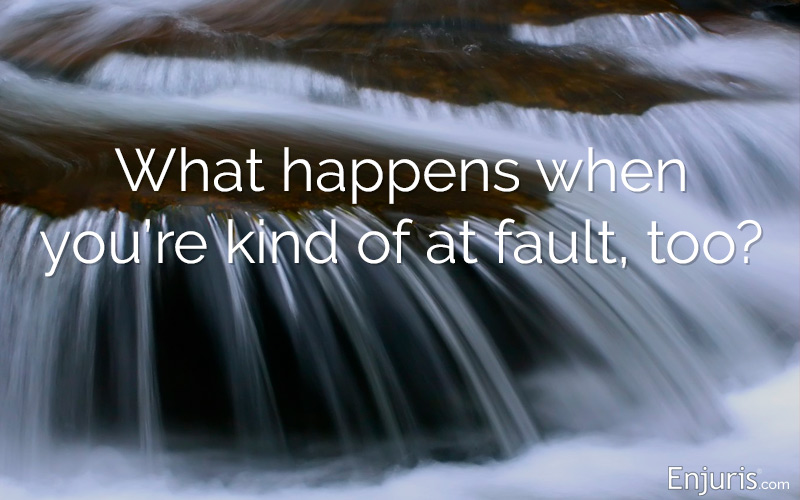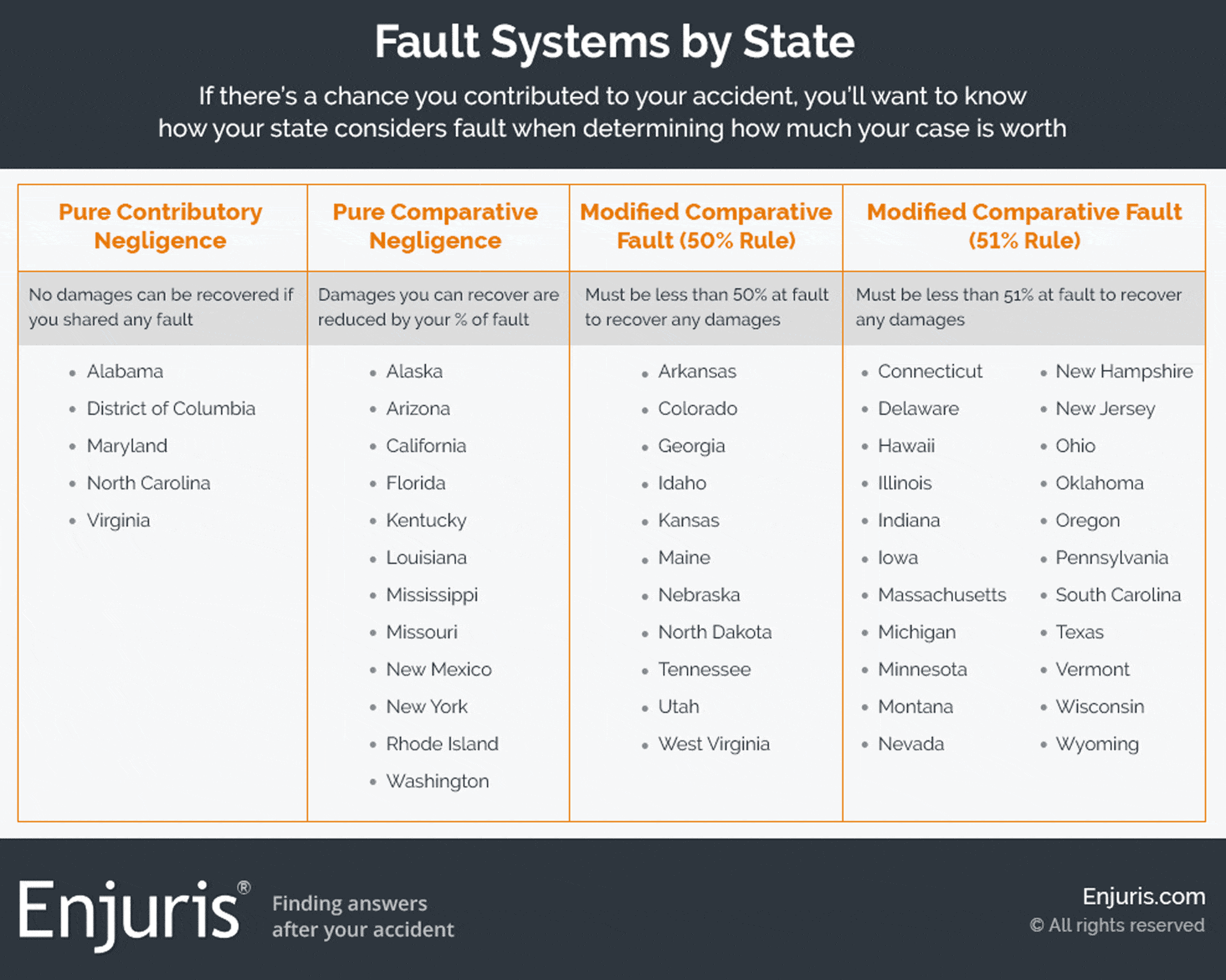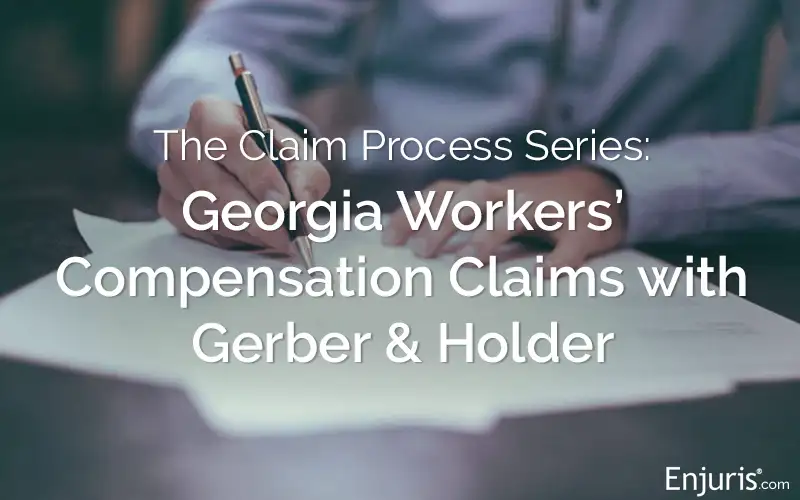
Personal injury law should be easy. A person was injured, and the person who caused the injury should be held responsible for the damages. Straightforward, right? Not always.
First, the basics.
A personal injury claim usually hinges on the defendant’s negligence in their acts or omissions. Negligence is the unintentional failure to take reasonable care to avoid causing injury or loss to another person.
Elements to prove negligence in Georgia
There are 4 key elements necessary to establish negligence in a Georgia personal injury claim:
- The defendant had a duty of care to the plaintiff. Each person has a duty of care to others, and that duty varies based on circumstances. For example, a driver has a duty to motorists, pedestrians, and other road users. A manufacturer has a duty to the consumers who purchase its products to produce items that are safe when used in a foreseeable way.
- The defendant breached their duty of care. If the defendant was careless in a way that resulted in the plaintiff’s injury, the defendant breached their duty of care. In other words, consider a store owner who has a duty of care for the safety of any shoppers who enter the store. If the store owner is aware that the floor is wet and they fail to place a warning sign or to block off the wet floor area, they could be found negligent if a customer is injured from a slip and fall on the wet floor.
- The breach directly caused the injury. Following the example about the store owner who breached their duty by failing to place a warning sign on the wet floor, a finding of negligence would also require that the reason why the plaintiff fell was because they weren’t warned about the slippery conditions.
- The injury resulted in loss. The basis of personal injury law is that a claim is made for the purpose of making the plaintiff “whole.” To be considered whole, you must be restored to the financial condition you’d be in if the accident had never happened in the first place. A claim for damages is calculated to cover any financial losses (medical treatment, lost wages, etc.) and can also cover losses related to pain and suffering, which aren’t as easily quantified but are based on the severity of the physical harm.
Example of how negligence works
So, in a “by the book” claim for a slip and fall injury in Georgia, here’s how negligence might work:
- The store owner had a duty of care to the customer to keep the premises free from hazardous conditions.
- The store owner breached their duty because they knew the floor was wet and didn’t take precautions to alert customers that the floor could be slippery.
- The customer didn’t know the floor was wet and fell.
- The fall resulted in the customer’s suffering a broken hip.
- The broken hip cost the customer thousands of dollars in surgeries, assistive equipment, doctor visits, and physical therapy. They also experienced pain and suffering because they were no longer able to participate in activities they’d previously enjoyed or manage their own daily activities during the lengthy recovery process.
If this were a real-life case, the court might award damages to the plaintiff in an amount that covers their medical treatments, plus pain and suffering.
But most cases are more complicated.
In Georgia, a defendant can argue contributory negligence. This is a shared fault rule under which the court would determine whether the plaintiff is also partially at fault for their own injuries.
What are shared fault rules?
Each state falls into one of 4 fault systems, or sets of rules that define how fault is shared between a plaintiff and defendant.
The fault systems are:
- Pure contributory negligence. If the plaintiff shared any fault, they can’t recover damages.
- Pure comparative negligence. The court will reduce the amount of damages awarded to the plaintiff based on their percentage of fault.
- Modified comparative fault (50% rule). The plaintiff may only recover damages if they’re 50% or less at fault.
- Modified comparative fault (51% rule). The plaintiff may only recover damages if they’re 51% at less at fault.
Here’s how the different fault systems break down by state:

Fault Systems by State
View Full Size Get the Code Use this graphic on your site
Use this infographic on your site
We encourage people to use our infographics, with proper attribution. Just copy and paste the code below to use this infographic on your site. If you need help, let us know!
<a href="https://www.enjuris.com/personal-injury-law/shared-fault-rules/" target="blank"><img src="https://www.enjuris.com/wp-content/uploads/2022/10/fault-systems-by-state-2022.gif" alt="Fault Systems by State" title="Fault Systems by State" style="width: 100%; max-width: 987px; display: block; margin: 15px auto;" /></a>
As you can see, Georgia follows the modified comparative fault 50% rule. If you’re a plaintiff who’s 50% or more at fault for your injuries, you cannot recover any damages. However, if you’re up to 49% liable for your injuries, your damage award would be reduced by your percentage of fault.
Let’s look back at the slippery floor example again.
What if the plaintiff was wearing high-heeled smooth-soled shoes and she was running because she was in a hurry?
The store owner certainly bears the liability of failing to warn customers of the dangerous condition, but if the plaintiff was running and wearing shoes that aren’t designed for it, and perhaps she was also looking at her phone (so even less likely to notice a wet floor), maybe she also bears some responsibility for the accident.
Say the court determines that the plaintiff was 40% at fault.
Her damages amounted to $100,000.
The court would reduce her damage award by 40%, and she would receive $60,000 in damages for her injury. In that same scenario, if the court decided that the plaintiff was 51% percent liable for the slip and fall, she would receive no damages under Georgia law.
How are the percentages of liability decided?
Whether you’re able to settle out of court or the case ends up at trial, the percentage of liability will ultimately be determined based on the weight of the evidence presented.
In a car accident claim, for instance, the court would consider evidence presented in the police report, witness testimony, drivers’ testimony, and other factors. Today, many accidents ( car crashes , slip and falls, and others) are captured on video because of the ubiquitousness of surveillance cameras in stores, at traffic lights, and in other public places. If your accident was captured on video, that might be the strongest evidence there is (though it could help either side).
That’s why it’s crucial to hire a personal injury lawyer who knows Georgia law inside and out.
By examining every piece of evidence — yours and the defendant’s — your lawyer can build a case that’s as favorable to your desired outcome as possible.

